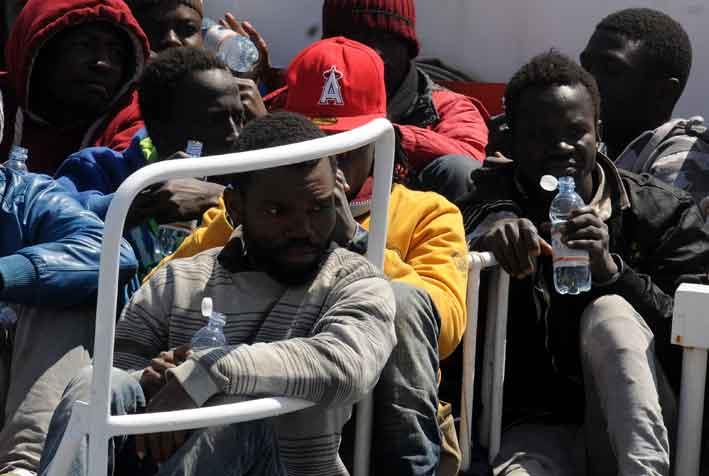The United Nations High Commissioner for Refugees (UNHCR) stressed that saving human lives at sea should remain a priority and that implementing a plan for resettlement is a must.
In comments to The Malta Independent UNHCR spokesman Federico Fossi explained that in the past three years, migrants at sea have faced three different scenarios. Late in 2013, an emergency response involving the Italian Coast Guard managed lead to the rescue of 155 people, who survived the shipwreck off Lampedusa. Another 366 lost their lives.
The reaction to the events was massive and emotional and Italian authorities set up the Mare Nostrum Operation to tackle the dramatic increase of migratory flows, using five Italian Italian Navy ships and air units.
“At that point the dynamics of people being rescued changed completely. People were being disembarked on navy boats,” Mr Fossi said. Despite its success, the Operation was closed down after a year, because the Italian authorities said it was too costly to run, and it wasn’t being assisted by the EU.
In November 2014, the Triton Operation was launched by Frontex, controlled by Italian Authorities. “However the resources are limited, and the scope is slightly different than that of Mare Nostrum.”

Migrants are very often taken to the reception centres, two of the biggest in Lampedusa and Pozzallo, where according to UNHCR’s recommendations, migrants should not be kept for longer than 48 hours. Survivors are offered assistance, identified and provided food water and clothes, before being transferred to various centres across Italy, some of which have been set up to deal with extraordinary events.
If migrants wish to apply for protection, they would need to lodge their request with the police, after which they are interviewed by commissioners across Italy. A UNHCR is also present during the interviews.
“It is there that migrants tell their story, and explain their reason for why they applied for international protection. It often might take up to a year for them to receive for a judgment for request, and even longer than that if they appeal the judgment,” Mr Fossi explains.
The UNHCR constantly monitors the conditions of the reception centres and provides reports to the competent authorities highlighting what services are inadequate . “ What UNHCR has been recommending for a while now, is that reception centres in Italy are decentralised, and cover all Italian territory. Instead of having centres dealing with 4,000 people at a time, there should be a greater number of small centres.”
The Commission also has an office set up in Libya, however, Mr Fossi explains that the operations there are very limited because UNHCR was never officially recognised by authorities there.